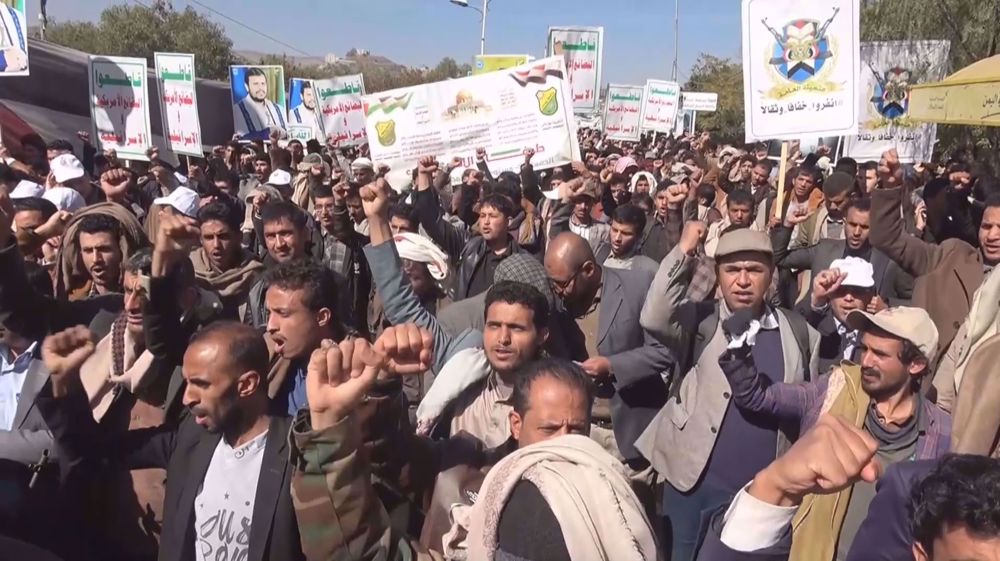UK faces prospect of general strike
Saeed Pourreza
Press TV, London
More picket lines and travel disruptions as tens of thousands of rail workers across Britain walk out.
Represented by the RMT union, for months they've been asking the government for better working conditions and an increase in their pay to match the double digit inflation.
The government says pay rises are unaffordable and has promised tough action against the unions. The unions say they are standing firm.
The strikes come at a cost to the economy in terms of lost working days. And the right-wing media here have been counting that cost. Yet that doesn't seem to have dented public support for the strikers.
The rail workers' walkout comes amid a cost of living crisis that's seen food and energy prices soar to forty-year highs since the start of the Ukraine war pushing million of Britons into poverty.
Staff at the crisis hit national health service will also be going on strike this week for the first time in more than one hundred years. And the number of sectors joining the strike action is only growing.
There may not be a general strike as we traditionally know it but the way things are going: the different trade unions could synchronize their action to maximize their leverage and get a better deal for their members.
World has ‘embarrassingly failed to stop Israel amid incessant US support’: FM
Iran-Egypt ties poised for revival as first Iranian president visits Cairo in 11 years
Iran’s cenbank says inflation down to lowest in 4 years
Iran rejects Canada-sponsored UNGA resolution as baseless, political
US disregards Spain’s arms embargo on shipments destined for Israel
Palestinian detainees on hunger strike to protest Israeli repression
US sanctions 3 individuals, 4 entities over links to Iranian military
VIDEO | Press TV's news headlines









 This makes it easy to access the Press TV website
This makes it easy to access the Press TV website